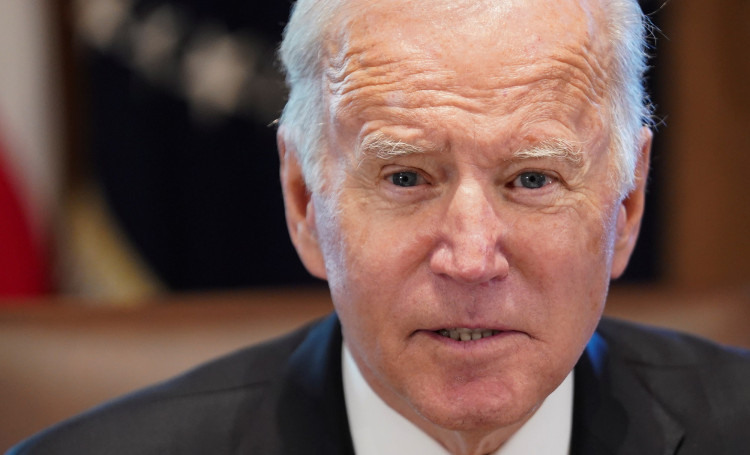U.S. President Joe Biden and Israeli Prime Minister Benjamin Netanyahu held a phone call on Sunday, primarily focusing on the release of hostages held by Hamas in Gaza and the delivery of humanitarian assistance to the region. The call, which lasted just under an hour, also touched on the potential Israeli invasion of Rafah, with Biden reiterating his "clear position" on the matter, according to a White House readout.
A source familiar with the call said that the two leaders discussed the videos released last week of two Americans held hostage, as well as Biden's rare joint statement with leaders from 17 other countries, urging Hamas to accept the terms of the ceasefire and hostage deal. The White House readout also highlighted the leaders' conversation about increases in the delivery of humanitarian assistance into Gaza, including preparations to open new northern crossings starting this week.
"The President stressed the need for this progress to be sustained and enhanced in full coordination with humanitarian organizations," the readout stated.
The Biden administration has made it clear to its Israeli counterparts that it wants to see a clear and actionable plan on how they would protect civilians in Rafah, the Gaza Strip's southernmost city, where more than 1 million people are currently sheltering. Israel has assured the US that it won't launch an invasion until the Biden administration can share its concerns, according to White House National Security communications adviser John Kirby.
Kirby, speaking on ABC's "This Week," said the US is still working on reaching an agreement that would include a temporary ceasefire and the release of hostages. He expressed hope that a six-week temporary ceasefire could lead to a more enduring solution and an end to the conflict.
Secretary of State Antony Blinken is set to visit the region this week to discuss the ceasefire and hostage talks between Israel and Hamas, which remain stalled despite months of mediation by Qatar and Egypt.
During the call, Biden also reaffirmed his "ironclad" commitment to Israel's security, just days after signing into law an aid package that includes $26 billion for Israel, along with nearly $61 billion in aid to Ukraine and $8 billion for the Indo-Pacific.
The phone call between Biden and Netanyahu comes against the backdrop of growing pro-Palestinian protests on US college campuses. Student organizers are calling for an end to the war and urging their universities to divest from companies that do business in Israel. The protests have put pressure on Biden, who has faced criticism from progressives and Muslim Americans for his support of Israel, while others have called on him to denounce the rising antisemitism on college campuses.
The recent call also underscored the differences between the US and Israel on the strategy in Rafah, with Netanyahu showing no signs of backing away from a ground offensive despite the US's public opposition. "The leaders discussed Rafah and the President reiterated his clear position," the White House readout noted.
In an earlier phone call on April 4, Biden spoke with Netanyahu after an Israeli airstrike killed seven World Central Kitchen humanitarian workers. During that call, Biden "emphasized that the strikes on humanitarian workers and the overall humanitarian situation are unacceptable," according to the White House readout. In the days following the aid workers' deaths, the administration's public rhetoric toward the Israeli government sharpened, with Biden criticizing Netanyahu more than he had previously.






